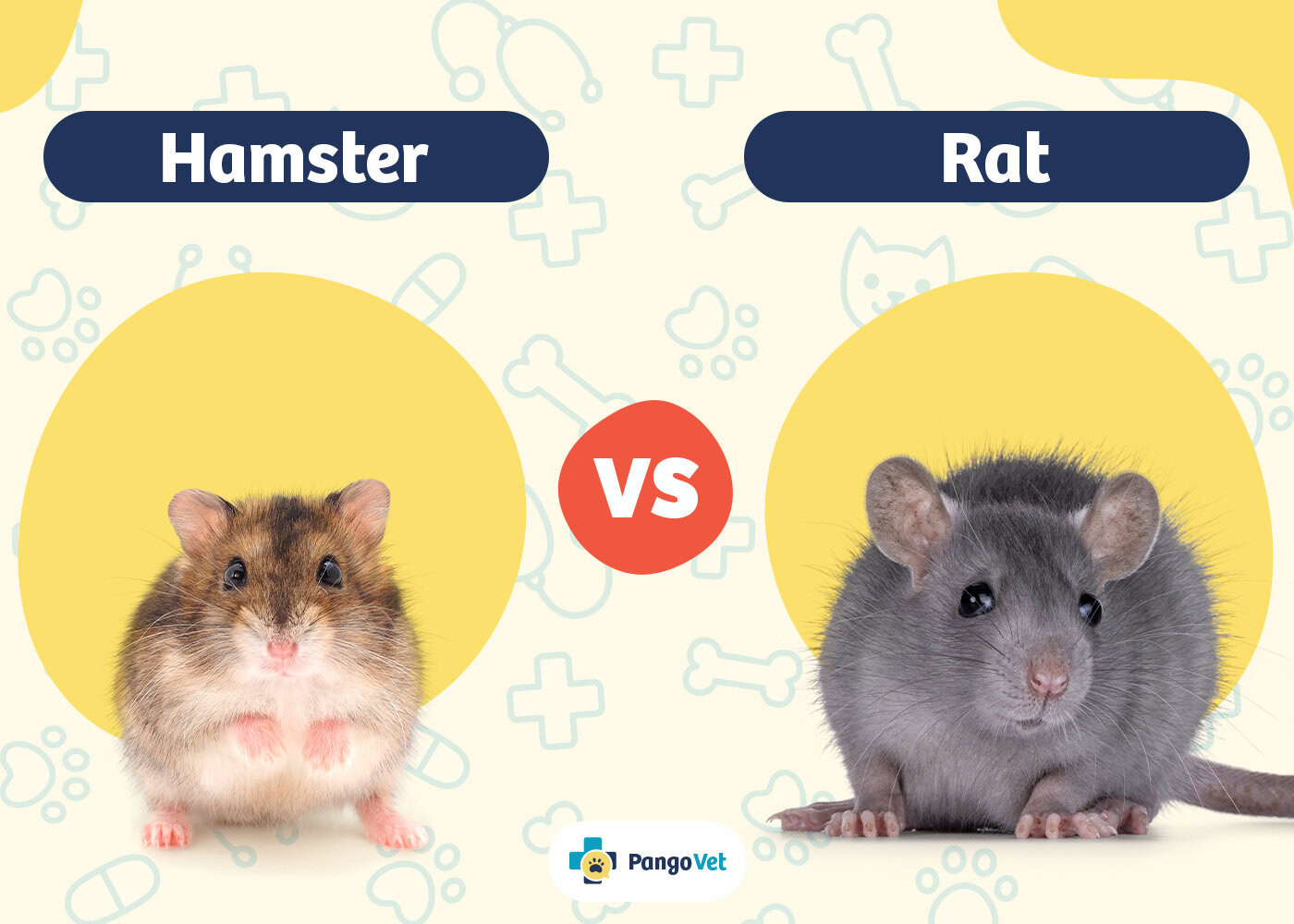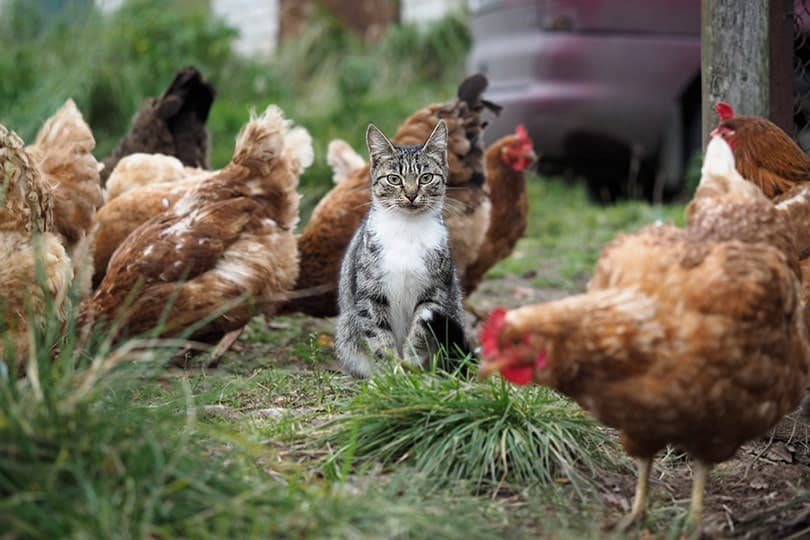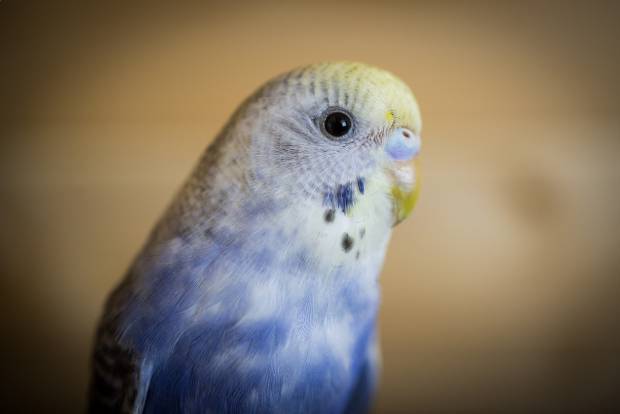VET APPROVED

The information is current and up-to-date in accordance with the latest veterinarian research.
Learn more »Hamsters and rats are one of the most popular pet rodents. They are both known for being intelligent, and they enjoy spending time with their owners as long as they are regularly and routinely socialized. They both live approximately 2 years and while the rat is a little larger than the hamster, it is also considered easier to train. Rats can be trained to perform various tricks and commands, and they are well known for their ability to find their way out of mazes and around obstacles.
Both of these species make good pets for older children, as well as adults, although care must be taken to ensure that your children do not accidentally hurt the small animals. It doesn’t take much to cause serious injury to animals of this size.
The two species have similarities; they are small, live in cages, enjoy socialization, and can be somewhat trained. Below, we’ll discuss the hamster and the rat so that you can decide which is best for you and your family.

Visual Differences
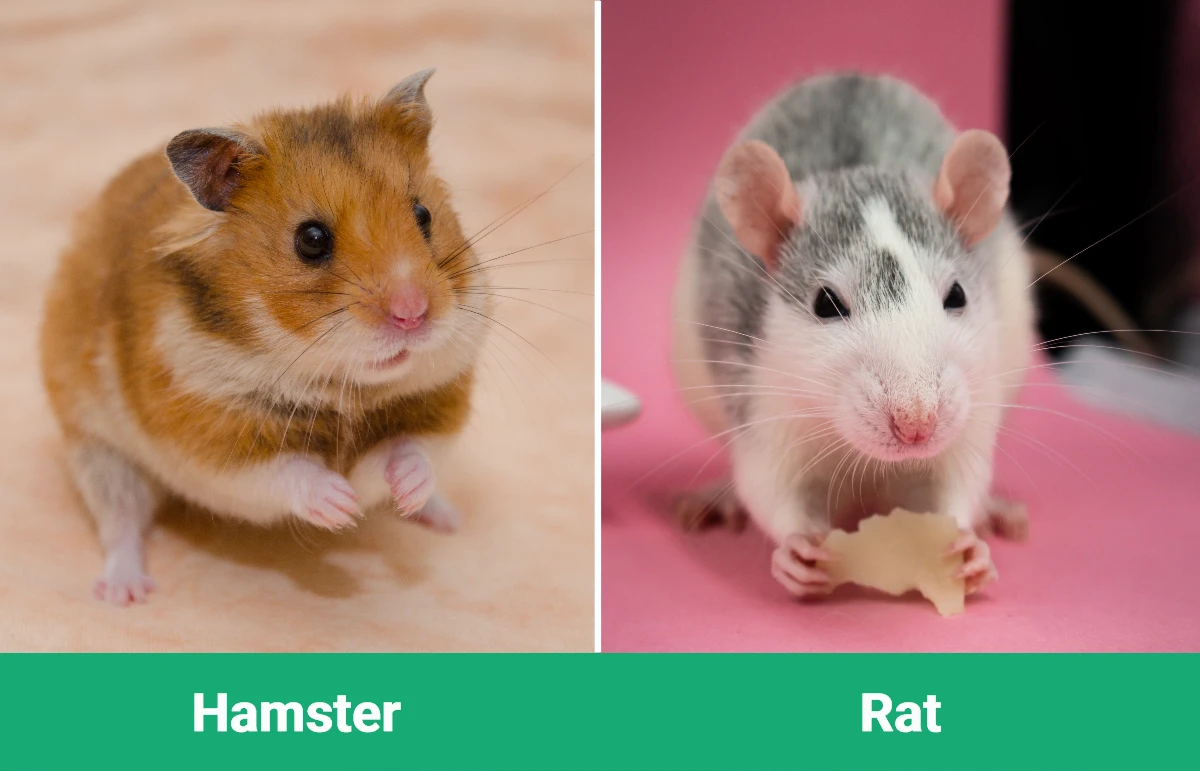
A Quick Overview
- Average Length (adult): 5-7 inches
- Average Weight (adult): 4-5 oz
- Lifespan: 1.5–3 years (depending on the breed)
- Grooming needs: Moderate
- Family-friendly: Yes
- Social Needs: Generally solitary
- Trainability: Intelligent, active, friendly toward people, curious, docile
- Average size (adult): 8–10 inches (excluding tail)
- Average weight (adult): 5–17 ounces (average)
- Lifespan: 2–3 years
- Grooming needs: Low
- Family-friendly: Yes
- Social Needs: Highly social, should be kept in pairs
- Trainability: Very intelligent, easily trained

Hamster Overview
Hamsters are cute little rodents with round bodies and cheeks, fluffy fur, and long whiskers. There are, in fact, many distinct species of hamster, ranging from the tiny Russian dwarf hamster to the Syrian hamster, the latter of which is the most popular of all the species. Chinese hamsters also make popular pets.
The hamster is considered a popular pet because they tend to be friendly, are fun to watch and care for, and are undeniably cute. While they are sometimes used as a ‘gateway pet’ to ensure that a child can look after a small animal before getting a cat or dog, they have plenty of character of their own, and they can be a great addition to the home.
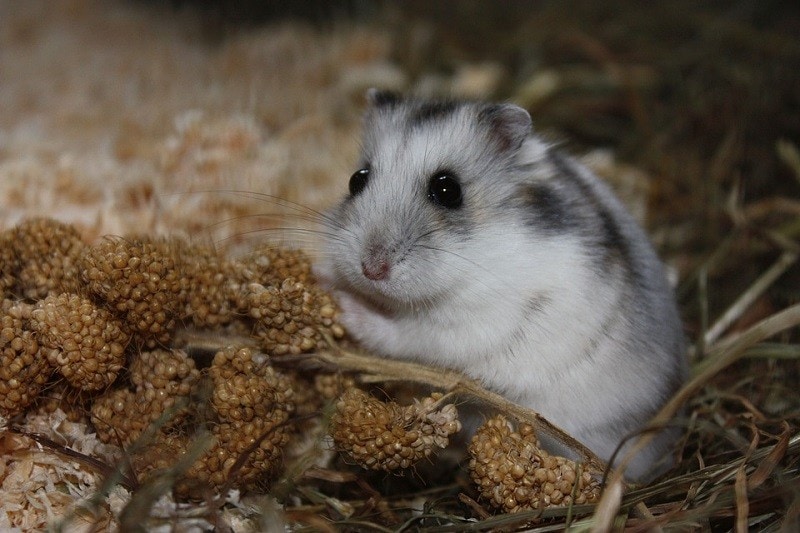
Personality
Hamsters are solitary creatures. They prefer to be alone, and if you try to keep two male hamsters together, they may try and kill one another once they reach adulthood. With humans, however, they tend to be docile and even friendly. With some socialization, they enjoy being handled and rarely bite. They are nocturnal creatures, so will come alive at night and sleep through the day.
Training
Hamsters are receptive to some training, but it depends on your definition of training. While it is unlikely that you will train your hamster to sit or perform tricks, you can train them good social skills. A young hamster may try and bite you, but with regular and calm handling, they will stop biting. They will also learn where their food is, and they may learn that specific actions occur before feeding. It is possible to train a hamster to come to you for food.
Health and Care
Hamsters usually live 2–3 years. Adequate housing conditions, a high-quality diet, and routine preventive care will go a long way toward keeping your hamster safe, happy, and healthy. They are, as all animals, prone to certain health conditions. They may suffer from respiratory and digestive problems. Diarrhea, often called wet tail, is caused by different issues including a bacterial infection. Once a hamster is showing signs, it can die within 72 hours, so early identification and veterinary attention are important.
Hamsters need daily handling to ensure they are well-socialized. Their cages need cleaning out every few days, and you will need to remove soiled bedding every day. The more time you spend looking after your hamster and the habitat, the healthier it will be.
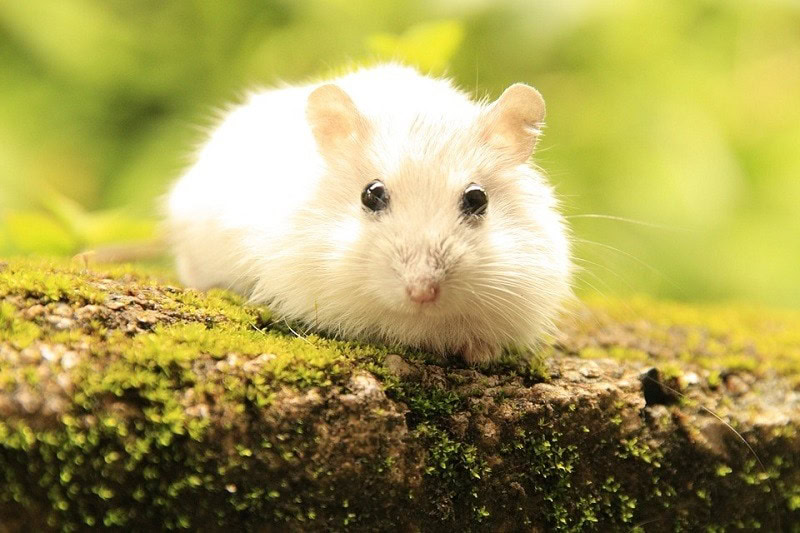
Suitable For
Hamsters are suitable for all potential owners who can provide a little time daily to give them love and attention. If you cannot give them daily attention, they are not suitable pets.

Rat Overview

Rats have grown in popularity in recent years. In terms of aesthetics, some people think they are not as cute as hamsters, and many are put off by their long tails and the old reputation of being dirty animals. However, rats are as close as you can get to a cat or dog. They are responsive, show love to their owners, are highly intelligent, and can be trained.
Personality
While hamsters can be grumpy, even toward their human owners, rats tend to be much more laid-back. Following early socialization, they rarely bite, and they can live with other rats, usually without fear or trying to kill one another.
Training
Rats are incredibly intelligent animals. They can figure out quite complex problems, and you can use this intelligence to train them. Rats can learn to respond to their name, they can learn some basic commands, and they excel at small problem-solving tasks. They need plenty of time out of their cages and need to be provided with mental stimulation as well as physical stimulation.
Health and Care
Rats can suffer from several common health complaints. They regularly get runny noses and eyes, may have breathing difficulties, and may lose weight. If your rat experiences any of these issues, make an appointment with your vet. Expect your pet rat to live approximately 2–3 years, and ensure it has clean bedding and a safe environment.
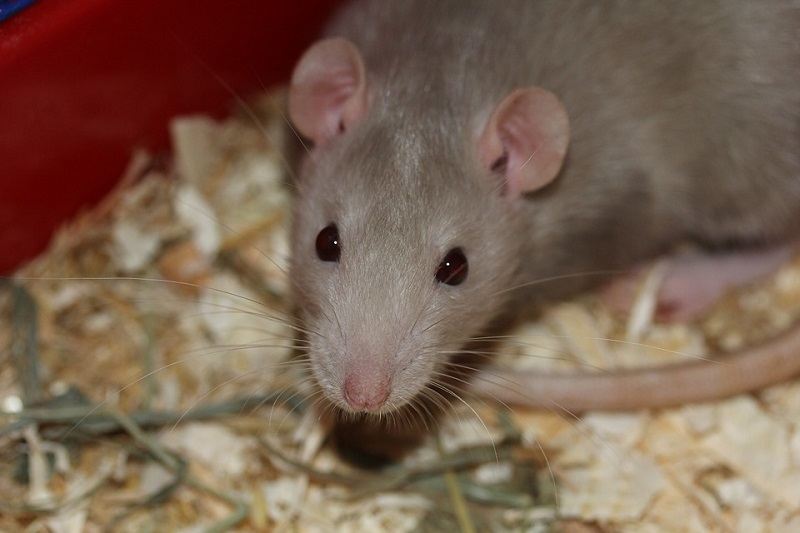
Suitable For
Rats are also suitable for any pet owner who wants a small but responsive pet. Rats can be surprisingly affectionate, bond with their owner, and even be taught to perform some basic tasks. They are very intelligent, and if their tail doesn’t put you off, they make excellent pets for people of any age or pet experience.

Which Species Is Right for You?
Both hamsters and rats can make wonderful pets, each with their own unique traits. If you’re looking for a highly social, intelligent companion that enjoys bonding and training, a rat might be the better fit. On the other hand, if you prefer a more independent, low-maintenance pet that’s small, quiet, and easy to care for, a hamster could be ideal.
Ultimately, the best choice depends on your lifestyle, preferences, and the level of interaction you’re hoping for. Whichever species you choose, providing proper care, enrichment, and attention will help ensure a happy and healthy life for your new pet.

See Also:
- Hamster vs. Guinea Pig: Which One to Choose (With Pictures)
- Cane Corso French Bulldog Mix: Care, Pictures, Info & More
Featured Image Credit: Top – dep377, Pixabay | Bottom – ErikSmit, Pixabay
